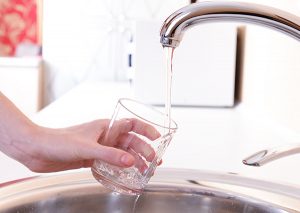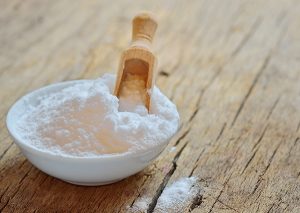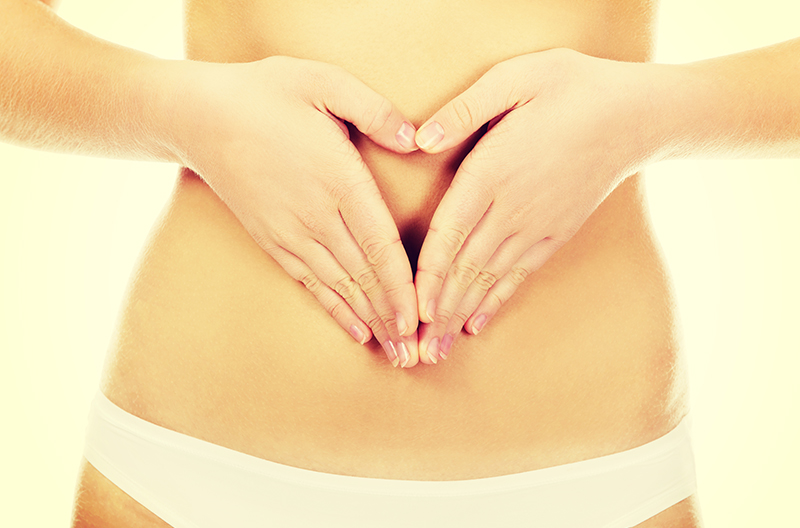A urinary tract infection occurs when bacteria reach the bladder through the urethra.
Urinary tract infections are easy to treat, but when you are experiencing all the agonizing symptoms at once like burning and stinging pain when urinating, then that treatment is not really reassuring.
The infection can occur spontaneously, but sexual intercourse, diaphragm use, and infrequent urination can increase the risk. The majority of UTIs (urinary tract infections) happen due to external bacteria getting into the urethra, which is where the urine travels through (from the bladder) when exiting the body.
Sexual intercourse is often a cause because it pushes these external bacteria into the urethra. UTIs also happen more often after menopause because of the reduced estrogen which causes the vaginal tissues and urethra to lose moisture and therefore be less able to fight off bacteria.[1]
Urinary tract infections are some of the most common clinical bacterial infections in women, making up 25% of all infections. Approximately half of all women will have a UTI at some point in their life. Since antibiotics are most often prescribed to treat UTIS, the bacteria have become resistant to antibiotics, meaning the bacteria will no longer be effectively treated this way. Men can develop UTIs, but this happens rarely due to the anatomical differences in men and women. It is simply harder for bacteria to get inside the male urinary tract than a female one.
After treating a UTI for a period of time, you’ll definitely reach the stage where you get tired of making appointments, seeing the doctor, peeing in a cup, and getting a prescription for antibiotics. It simply takes a whole lot of your time and also does not guarantee that the infection won’t reoccur. In fact, taking an antibiotic isn’t the only way to get over symptoms of a urinary tract infection (UTI).
Fortunately, not all remedies require a doctor’s prescription. Plenty of remedies can conveniently be done at home in addition to any doctor recommended treatment. In this article, we will examine 7 remedies that are proven to help alleviate UTI symptoms and keep you free from it altogether. Wondering what they are?
Drink Plenty of Water

Fluids help flush harmful bacteria out of your system, so drinking water or fluids can go a long way in helping prevent an imminent UTI. Water dilutes the concentrated salts in urine as well, which can reduce discomfort when there is an infection by making urinating less painful.
Urine is produced by waste products from your body. When urine is dark, it may be more irritating and painful to pass when you have a bladder infection. When we drink water the urine becomes lighter in color and usually doesn’t irritate as much, so drink enough fluid for your urine to become light yellow.
One study describes how chronic low fluid intake may be an important factor in the pathogenesis of UTIs. According to its analysis, the amount of water you should drink also depends on your body mass.[2]
General recommendations have suggested that women get about 91 ounces of water daily and men get about 125 ounces each day, including water from food, as also noted in the previous report. Drinking water is very important because it can reduce the toxins in the body, so why don’t you pick up that bottle of water and bring your body back to homeostasis?[3]
Drink Cranberry Juice

Cranberries have been used for quite a few years in the prevention and treatment of UTIs. Cranberries contain elements like proanthocyanins that will prevent the bacteria from making the infection stick to the walls of the bladder or urethra, which in turn helps reduce inflammation and recurring infections. In case cranberry juice is not available, mixing the juice extract with water can also have the same effect. People with an overactive bladder should invariably avoid cranberry, because it can cause irritation and added sensitivity to their symptoms.
A study was done to assess the effectiveness of cranberry products in preventing UTIs in susceptible populations. It showed that cranberries were similar to antibiotics in preventing UTIs, and that they decrease the number of systematic UTIs over a 12-month period.[4]
But it’s not yet completely clear whether cranberry juice really works for preventing bladder infections in the larger population. It is clear, however, that, in general, cranberries help to maintain a clean urinary tract and this reduces the frequency of recurrent cystitis. Cranberry juice contains D-Mannose, a sugar that helps to effectively flush out bacteria from the urinary tract. The bottom line is that drinking cranberry juice will likely help prevent and relieve UTI symptoms.
Essential Oils

Can essential oils be an effective way to treat a UTI? Essential oils have antimicrobial, antifungal, antiviral, and antiparasitic properties which may benefit UTIs. For example, researchers have found that oregano is active against all clinical strains of bacteria and that it can successfully inhibit the growth of E. coli, the bacteria most commonly seen in UTIs. They also believe that oregano essential oil can be used as an alternative antibacterial remedy for enhancing the healing process in bacterial infections and could be an effective means for the prevention of antibiotic-resistant strain development.[5]
Lemongrass oil is effective in killing off harmful pathogens, and clove oil has been discovered to possess anti-inflammatory properties that can be useful in relieving pain and promote healing. So yes, essential oils can be used to treat UTIs. It can also be tricky, however, because the urinary tract is normally a sterile area, so you don’t want to introduce anything foreign into the area. So, all essential oils must be diluted before they can be applied directly to the skin. To dilute the essential oil, place 1 to 5 drops in 1 ounce of some type of carrier oil. Carrier oils could be sweet almond oil, coconut oil, sunflower oil, or olive oil.
Always dilute essential oils before use and test it on a patch of skin for any reactions. Most importantly, try not to swallow the ones that are only to be used for external purposes.
Use Baking Soda

Baking soda is both simple and effective when it comes to treating bladder infections. The soda can neutralize urine acidity due to its alkaline nature which helps relieve the symptoms and make the recovery process take less time. The other benefit of baking soda is that it detoxifies and cleans the kidneys along with providing rapid healing of these vital organs.
You can reduce the constant feeling of needing to urinate as well as the painful burning by drinking a blend of water and baking soda. Use one cup of cold water combined with one teaspoon of baking soda, and mix the two together thoroughly.[6]
It’s important to note that taking soda and water is not a substitute for conventional treatment of a urinary tract infection. UTIs should never go untreated or treated with only baking soda and water. Aside from orally taking baking soda, placing baking soda in the tub filled with just a little bit of water (enough to cover your bottom and urethra) can help reduce the pain of a UTI.
Fun Fact: Prevention of UTIs has always been done via once-daily or post-coital antimicrobials. However, new interest is starting to stir around other approaches that don’t involve antimicrobials. These approaches the use of probiotics, vaccines, oligosaccharide inhibitors of bacterial adherence and colonization, and bacterial interference with immune-reactive extracts of Escherichia coli.
Avoid Coffee, Alcohol, Chocolate, and Orange Juice

There are some kinds of foods that will worsen your symptoms. Try to reduce the amount of caffeine, alcohol, citrus, and chocolate that you are consuming. These foods stimulate the muscular walls of the bladder, increasing urinary urges and cause additional discomfort. Do not eat these foods when you are combating a UTI.
Strawberries, pineapple, orange juice and grape all have high acidity, which can increase the burning sensation during urination when you have a UTI. You can slowly reintroduce these foods into your diet after the pain and the urge for frequent urination has gone away.
Take Vitamin C Supplements

Vitamin C, also known as ascorbic acid, is a water-soluble nutrient found in fruits and vegetables which also serves as a supplement. It also has antioxidant properties that make it beneficial to your health in a number of ways. Vitamin C cannot be produced by the body and must therefore be obtained from foods and supplements.
Like cranberry juice, vitamin C limits the growth of some bacteria by acidifying the urine. Studies show that it could protect against urinary tract infections. It was shown that pregnant women with UTIs who took vitamin C (100mg) received a protective effect from the C vitamin, thereby cutting the risk of infection by half.
A study also looked at behavioral factors that affected the risk of UTIs. The results showed that taking vitamin C in high doses reduced the risk of getting a UTI. Everybody knows that fruits and vegetables contain Vitamin C in substantial quantities. Even so, taking them will not only help prevent and fight a UTI but also boost the immune system. Red peppers, oranges, grapefruit and kiwifruit all contain the full recommended amount of vitamin C in just one serving.
Urinate Regularly

Urine is essentially waste expelled from the body. A healthy adult bladder can hold up to 16 ounces of urine at a time. That measures out to about two cups.
Have an urge to go? Don’t delay; urinating often and when the urge arises ensures that bacteria aren’t growing in urine that stays in the bladder. As mentioned before, a urinary tract infection can result from holding in urine. This happens because bacteria can multiply in urine, allowing them to move into the urinary system after a while.
It may also be helpful to urinate after sexual intercourse. Sexual activity will push bacteria deeper into the urethra in both men and women, so urinating after sex can help flush bacteria away from the urinary tract, which in turn stops or prevents bacteria from growing, settling, and causing an infection.
Don’t be confused; simply holding your urine will not cause a UTI. Instead, it just gives the bacteria a conducive environment to multiply. Drink lots of fluids so you can urinate as soon as the urge arises.
The bladder is part of the urinary system and it is connected through the ureters to the kidneys. In rare cases, urine can back up into the kidneys and lead to an infection or kidney damage. That is why it is not a good idea to hold urine for long period of time, except in some case, like bladder training.
What Should You Do Now?
Seeing a primary care doctor is still your best option if you experience symptoms of a urinary tract infection. While it is always advisable to see a healthcare professional if you suspect you have some sort of infection, the information given in this article is still important. If followed properly, it could be the deciding factor between a recurring UTI and a cured one.
Let’s go over the important tips for preventing future infections again.
- Drink lots of water.
- Don’t hold in the waste product; urinate as soon as you need to.
- Take showers instead of baths; avoid hot tubs and Jacuzzis.
- Use cranberries as an antibiotic and prophylaxis.
- Supplement your diet with probiotic-rich foods.
- Wear comfortable clothes, like cotton. Anything that comes into contact with your private areas should be cotton.
- Baking soda, both drinking and bathing with it, can go a long way to relieve pain.
- Avoiding sugars and bowel irritants will reduce the number of times you have to bear that burning sensation. Cut out caffeine, avoid caffeine-loaded soft drinks, and don’t drink alcohol.
- Consume large amounts of Vitamin C to limit the growth of bacteria.
Tips for Eating to Prevent UTIs
Nutrient-rich healing foods are excellent for people who suffer as a result of recurrent UTIs. If you are susceptible to urinary tract infections (UTIs), you may want to tweak your diet. Some simple alterations to a diet can help prevent UTIs. Not only are these diet tips easy, but they also have other health benefits.
- Eat zinc-rich foods like oysters, ginger, egg yolks, oats, beef liver, flaxseeds, sunflower seeds, peanuts, Brazil nuts, almonds. Zinc boosts creation of white blood cells, which can help fight infection and their causative bacteria in the body.
- Eat foods rich in polyphenols, like unsweetened cranberry juice, blueberries or blueberry juice, decaf coffee, black tea, and dark chocolate.
- Vitamin C and A boost the immune system. Eating foods with these vitamins (such as grapefruit or other citrus fruits) helps prevent UTIs.
- Foods rich in probiotics help combat infections effectively and also prevent the growth of bad bacteria. Foods like kombucha, kefir, sauerkraut, or tempeh are good options.
- Some other fruits that are helpful include celery, asparagus, cucumber, fennel, radish, watermelon, jicama, celeriac, blueberries, coconut, lemon grass, ginger root.
So, there you have it. Having a urinary tract infection is no joke; it is annoying at the very least and downright painful at their worst. But if you dedicate yourself to undergoing lifestyle changes like a diet change and habits, you will have an easier time dealing with a urinary tract infection.
Hopefully you will even prevent it altogether. Regardless, always visit a doctor in any case of suspected UTI. Do not leave an infection too long without treatment, as this can lead to other complications which can be not only expensive but sometimes life threatening.

References
- [1] “19 Ways to Ease the Discomfort of a Urinary Tract Infection.” Prevention. <https://www.prevention.com/health/19-ways-to-ease-the-discomfort-of-a-urinary-tract-infection>
- [2] “Impact of fluid intake in the prevention of urinary system diseases: a brief review.” NCBI. <https://www.ncbi.nlm.nih.gov/pubmed/23673384>
- [3] “7 Best Remedies for Bladder Infections.” HealthLine. <https://www.healthline.com/health/bladder-infection-treatments>
- [4] “Cranberries for preventing urinary tract infections.” NCBI. <https://www.ncbi.nlm.nih.gov/pubmed/23076891>
- [5] “Treat a Painful UTI at Home with these 3 Easy Steps.” One Good Thing. <https://www.onegoodthingbyjillee.com/treating-urinary-tract-infections>
- [6] “Baking Soda & Water for Urinary Tract Infections.” Livestrong.com. <https://www.livestrong.com/article/520078-baking-soda-water-for-urinary-tract-infections/>
- Fun Fact source: https://www.ncbi.nlm.nih.gov/pubmed/19441868








